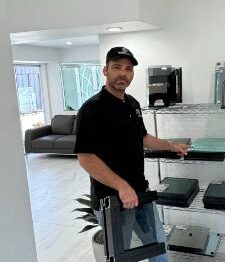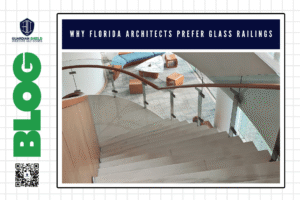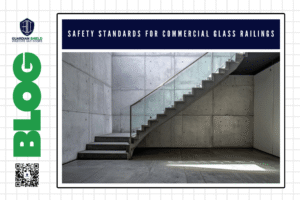When it comes to protecting your home in Florida, not all windows are created equal. Hurricanes, high winds, and flying debris demand more than just “strong glass.” That’s why the Florida Building Code (FBC) exists to set strict standards that every impact window must meet before it can be installed.
Yet many homeowners make costly mistakes: assuming any “hurricane window” is compliant, trusting unverified claims from contractors, or overlooking key certification details. The result? Unsafe homes, invalid insurance coverage, and wasted money.
This guide breaks down exactly what you need to know about Florida’s impact window requirements, so you can make a confident, informed choice for your property.
Why Florida Building Code Matters for Every Homeowner

The FBC was born from tragedy. After Hurricane Andrew in 1992, Florida realized its construction standards weren’t enough. The storm devastated thousands of homes, many of which failed because of weak windows and doors.
Since then, the FBC has evolved into one of the strictest building codes in the United States. Its purpose is simple: ensure that homes can withstand hurricane-force winds and protect the people inside.
For homeowners, this isn’t just a box to check. Code compliance impacts:
- Safety: Non-compliant windows can shatter during storms, exposing your home to wind, rain, and flying debris.
- Insurance: Many providers won’t grant hurricane discounts or may deny claims if your windows don’t meet code.
- Resale Value: Buyers in Florida know the importance of impact-rated windows. Non-compliant installations can make your home harder to sell.
What Makes a Window “Impact-Rated” in Florida?
Not all “storm windows” are created equal. To be truly FBC-approved, impact windows must pass a series of rigorous tests.
Large and Small Missile Tests
- Large Missile Test: A 9-pound 2×4 piece of lumber is shot at the glass at 50 feet per second to simulate hurricane debris.
- Small Missile Test: Steel ball bearings are fired at the glass to test resistance to smaller projectiles.
Wind Pressure and Water Infiltration
- Windows are tested to ensure they can handle both positive and negative air pressure, simulating hurricane winds pushing and pulling on the glass.
- They must also resist water infiltration, preventing leaks during heavy rainstorms.
Design Pressure (DP) Rating
Every impact window receives a DP rating. This number indicates how much wind force the product can withstand. Higher ratings = stronger protection.
Certification and Approval
To be legal in Florida, windows must carry either:
- Miami-Dade Notice of Acceptance (NOA) approval, or
- Florida Product Approval (FPA) certification.
These documents prove that the product has passed all necessary tests and meets Florida Building Code standards.
Common Mistakes Florida Homeowners Make

Even with strict codes, mistakes happen usually because homeowners don’t know what to look for. Here are the most common pitfalls:
- Assuming “Hurricane-Resistant” Means Impact-Rated
Some windows are marketed as hurricane-resistant but aren’t certified. Without official FBC or Miami-Dade approval, they won’t protect your home or pass inspection. - Not Checking Approval Numbers
Every compliant window should have a label or paperwork with its NOA or FPA number. If a contractor can’t provide this, that’s a red flag. - Skipping Permits and Inspections
Some installers cut corners by skipping the permitting process. While this may seem faster, it leaves homeowners exposed to violations and unsafe installations. - Overlooking Zone Differences
Building code requirements can differ depending on whether you live inland or in a High Velocity Hurricane Zone (HVHZ) such as Miami-Dade or Broward County. Choosing the wrong product means your home may not actually be protected.
How Guardian Shield Ensures Code Compliance

At Guardian Shield Windows and Doors, we take Florida Building Code seriously. That’s why every product we install is:
- Fully Certified: We only use windows and doors with verified Miami-Dade NOA or Florida Product Approval.
- Manufacturer-Backed: We partner with trusted brands like PGT, ES Windows, and Mr-Glass leaders in impact-rated products.
- Professionally Installed: Our licensed Florida contractors handle all permitting, inspections, and paperwork to keep you 100% compliant.
- Warranty Protected: Because we only install code-approved products, your warranty and insurance discounts remain valid.
When you work with Guardian Shield, you’re not just buying windows, you’re investing in peace of mind.
The Long-Term Benefits of Code-Compliant Impact Windows

Choosing the right windows isn’t just about hurricane season. Properly installed, FBC-approved impact windows offer year-round advantages:
- Lower Insurance Premiums: Many carriers offer discounts for homes with certified impact windows.
- Energy Efficiency: Advanced Low-E coatings and insulated glass reduce cooling costs.
- Noise Reduction: Double-laminated glass keeps outside noise to a minimum.
- Resale Value: Buyers want homes that are hurricane-ready. Code-compliant windows make your home more attractive on the market.
In short, the right impact windows protect your home, improve your lifestyle, and save you money over time.
Stay Safe, Stay Compliant with Guardian Shield
Don’t risk your home or your family’s safety on windows that don’t meet Florida Building Code. At Guardian Shield Windows and Doors, we specialize in impact-rated, code-compliant installations that are built to withstand Florida’s harshest storms.
Ready to protect your home?
Contact us today to schedule your consultation and discover the difference that certified impact windows can make.







